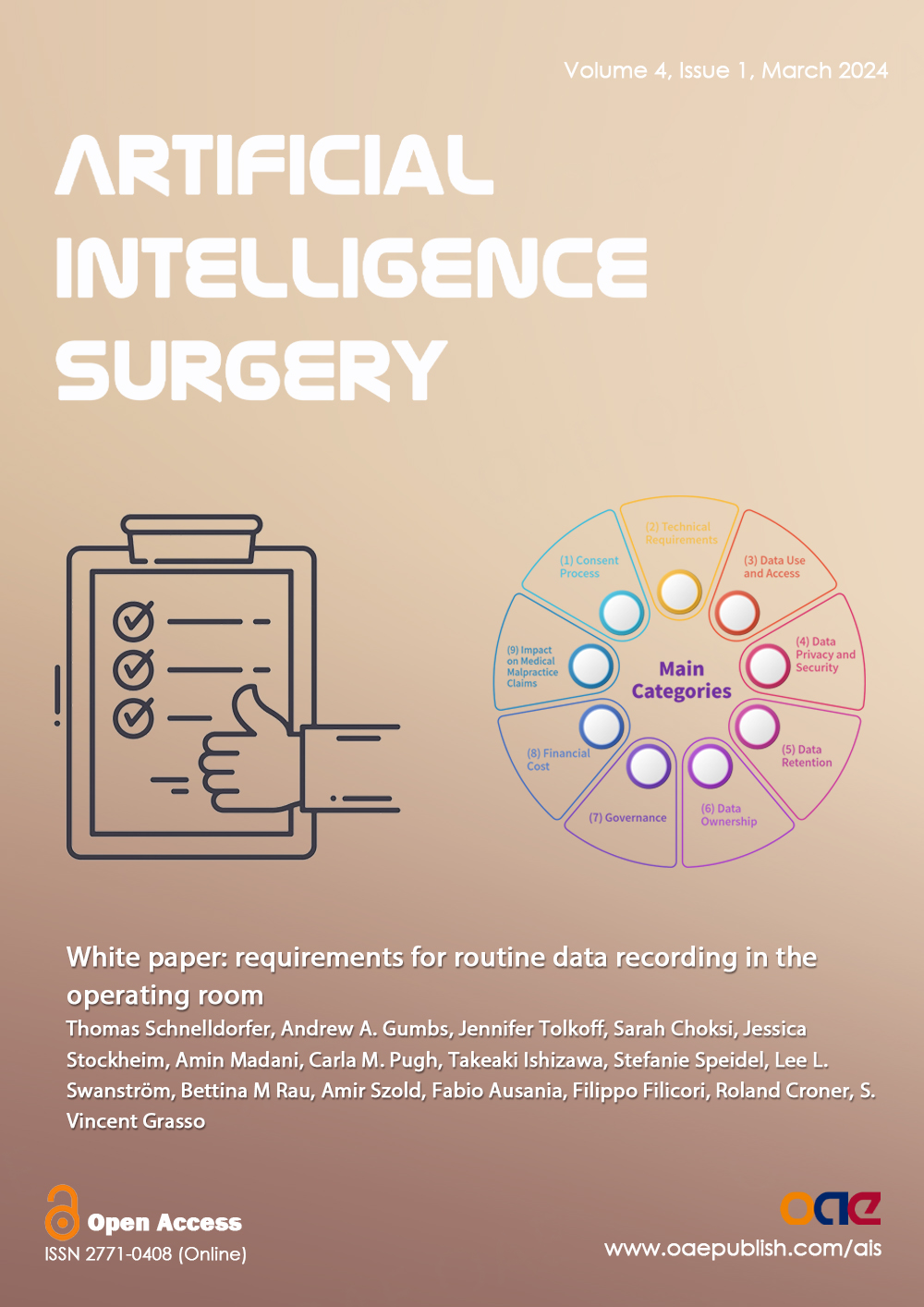Volume 4, Issue 1 (March, 2024) – 6 articles
Cover Picture: To properly train, test, and validate any system that utilizes artificial intelligence (AI) in surgery, the existence of large, high-quality datasets is critical. Some of the data can come from the preclinical setting, but much of the data is expected to derive from routine clinical care settings, such as the operating room. Therefore, now more than ever, there is a keen interest in the routine recording of data in the operating room. This comes with a broad range of potential benefits, such as retrospective reviews of intra-operative findings to guide post-operative care, the development of new adjunct technologies, such as AI systems, increased transparency in the identification of areas of need, and intelligent tools for training and providing feedback. However, these potential benefits also come with tremendous ethical concerns and barriers, which in the past have been the main roadblock to more widespread adoption and implementation of AI in healthcare. The goal of this manuscript is to identify the common requirements needed to address these barriers and to implement methods for the reliable recording of useful data in the operating room and thereby create a realistic pathway for wider implementation.
view this paper 









